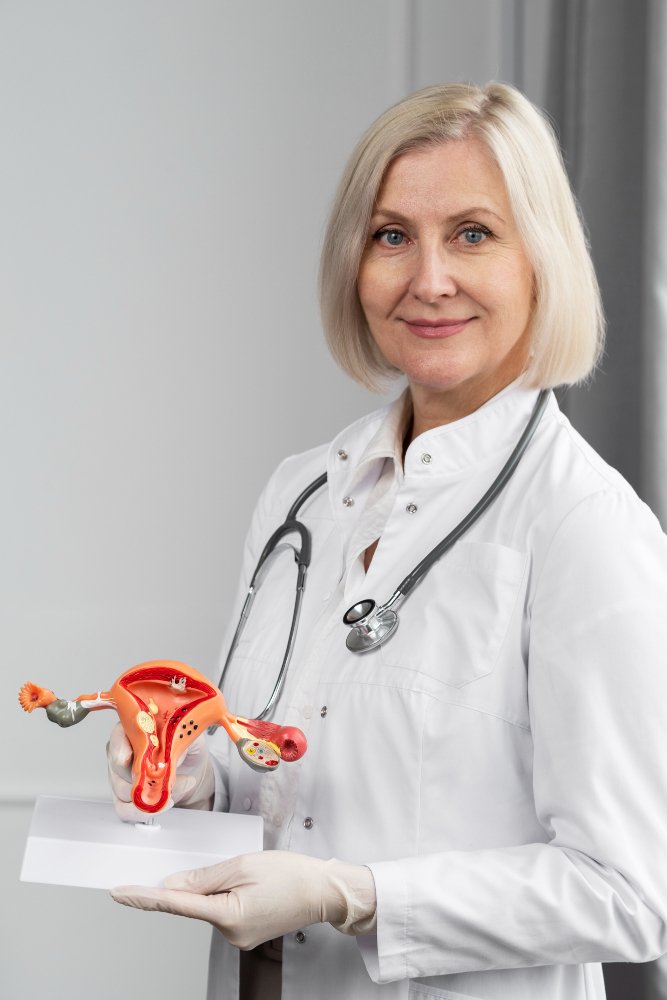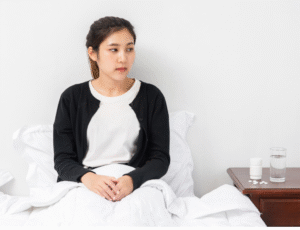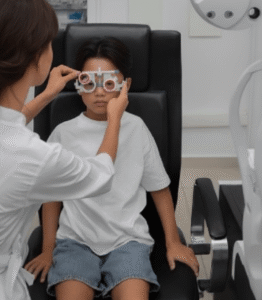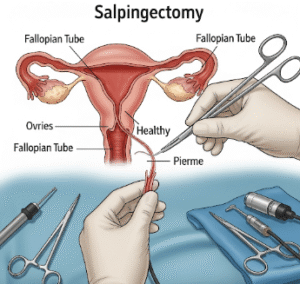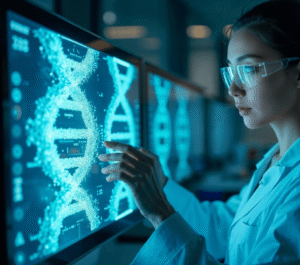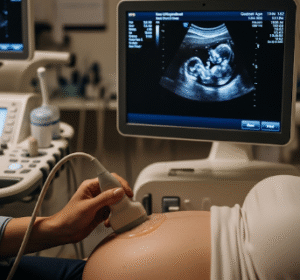Overview
Adenomyosis is a gynecological condition in which the inner lining of the uterus (endometrium) grows into the muscular wall of the uterus (myometrium). This can cause the uterus to become enlarged and result in heavy, painful menstrual periods and chronic pelvic pain. Though it shares similarities with endometriosis, adenomyosis is a distinct condition and often affects women in their 30s and 40s, particularly those who have had children.
What is Adenomyosis?
Adenomyosis occurs when endometrial tissue, which normally lines the uterine cavity, breaks through the muscle wall of the uterus. Each month, this misplaced tissue continues to thicken and bleed during the menstrual cycle, just like normal endometrial tissue, but it has no way to exit the body. This causes inflammation, pain, and an enlarged uterus.
Symptoms
The severity of symptoms can vary, and some women may have no symptoms at all. Common signs include:
- Heavy or prolonged menstrual bleeding (menorrhagia)
- Severe menstrual cramps (dysmenorrhea)
- Chronic pelvic pain
- Pain during intercourse (dyspareunia)
- Bloating or a feeling of pressure in the lower abdomen
- Infertility or difficulty getting pregnant (in rare cases)
Causes
The exact cause of adenomyosis is not fully understood, but several theories exist:
- Invasive tissue growth: Endometrial cells may invade the uterine muscle due to surgery, such as a cesarean section.
- Developmental origins: Adenomyosis may arise from endometrial tissue being deposited in the uterine muscle during fetal development.
- Uterine inflammation: Chronic inflammation of the uterus after childbirth may play a role.
- Hormonal factors: Estrogen appears to promote adenomyosis.
Risk Factors
Several factors may increase the likelihood of developing adenomyosis:
- Age: Most common in women aged 30–50
- Previous uterine surgery: Such as C-section or fibroid removal
- Childbirth history: Having had multiple pregnancies
- High estrogen levels: Naturally or through hormone therapy
- Endometriosis or other uterine disorders
Complications
Adenomyosis can lead to:
- Severe anemia: Due to heavy menstrual bleeding
- Chronic pelvic pain
- Sexual dysfunction
- Reduced quality of life
- Infertility: Though less common, it can interfere with conception in some women
Prevention
There are no guaranteed ways to prevent adenomyosis, but certain actions may reduce the risk or severity:
- Managing hormone levels through a balanced lifestyle
- Limiting unnecessary uterine surgeries
- Early treatment of heavy or painful periods
- Using hormonal birth control to regulate menstruation
Treatment Options Korea
1. Medication Therapy
- First-line treatment for symptom control
- NSAIDs (e.g., ibuprofen) to reduce menstrual pain and inflammation
- Hormonal therapies:
- Oral contraceptives
- Progestins (e.g., dienogest)
- Gonadotropin-releasing hormone (GnRH) agonists (e.g., leuprolide)
- Available in gynecology clinics and women’s health centers
2. Levonorgestrel-Releasing IUD (LNG-IUS)
- Hormonal intrauterine device (e.g., Mirena)
- Reduces heavy bleeding and pain
- Commonly used in Korea for long-term, non-surgical management
3. Uterine Artery Embolization (UAE)
- Minimally invasive procedure to block blood flow to the adenomyotic tissue
- Performed under imaging guidance by interventional radiologists
- Available at tertiary hospitals across Korea
4. High-Intensity Focused Ultrasound (HIFU)
- Non-invasive thermal ablation of adenomyotic lesions
- Offered at select Korean hospitals and fertility centers
- Preserves the uterus and fertility potential in some patients
5. Surgical Options
- Conservative surgery (e.g., adenomyomectomy) for women desiring fertility
- Total hysterectomy is the definitive cure for women with severe, unresponsive symptoms who do not wish to preserve fertility
- Performed by gynecologic surgeons in general and university hospitals
6. Fertility Counseling and Support
- Fertility may be affected by adenomyosis
- Multidisciplinary care including reproductive endocrinologists and fertility specialists
- Available in IVF centers and women’s hospitals in Korea

